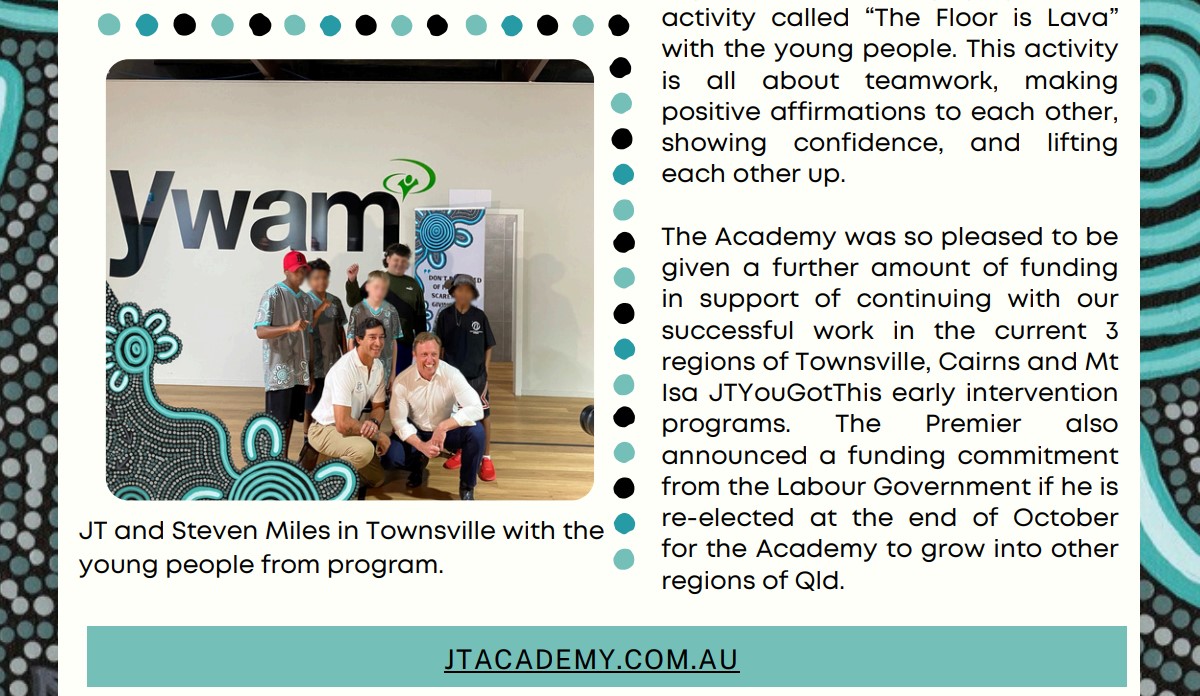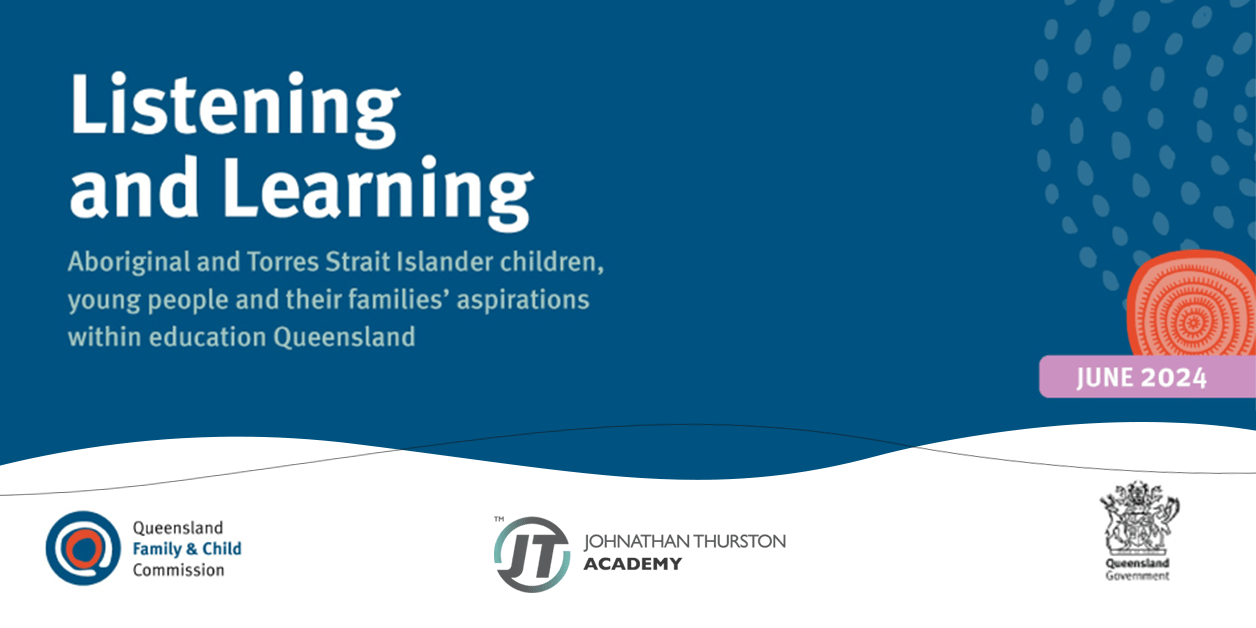You Can Make The Difference.
The Johnathan Thurston Academy is a provider of education programs and initiatives for the nation’s youth, aimed at employment, education, and wellbeing led by one of Australia’s greatest ever sporting champions and role models to young people, Johnathan Thurston.
Our mission at JT Academy is to boost and empower our nation’s youth with increased SELF-BELIEF, CONFIDENCE, and COURAGE.

Our Efforts to Drive Change


JTPrograms


JTCommunity


JTPartners



Welcome to The Johnathan Thurston Academy.
In February 2018, Managing Director Johnathan Thurston launched The Johnathan Thurston Academy, a powerful and influential institution that focuses on employment, community, and education engagement. Led by Johnathan Thurston himself, our Academy stands as a national ambassador of positive messaging and a force to be reckoned with.
At The Johnathan Thurston Academy, we bring together the strength of our powerful brand and our extensive networks to foster a sustainable collaborative approach. Our programs aim to create behavioural change, cultivate positive attitudes, and support students in their journey to complete their education and secure meaningful employment.
We pride ourselves on being a community of learning, where personal growth and experiences are shared through storytelling across generations. Participants at The Johnathan Thurston Academy not only experience personal growth and life success through inspired belief, but they also learn the invaluable skill of inspiring others to achieve the same.
Why JTAcademy? Quality Training and Opportunities.
Follow Our Programs
JTLeadLikeAGirl
JTBelieve
JTYouGotThis
JTSucceed
Programs and Stories by JT.
80 Items
December 2024 Newsletter
News


Another proud moment, watching young people graduate from JTA’s intervention program
News


Johnathan Thurston Academy Newsletter September 2024


Johnathan Thurston Academy Newsletter for August 2024
News


2024 Hall of Fame Induction – Johnathan Thurston


First Nations Education Project Report

Sign Up For JTNewsletter






Don’t Be Scared of Failing. Be Scared of Not Giving It A Go.
You might not be the biggest or the fastest, but you need to have that self belief that you're good enough
If you think you are outclassed, you are. You've got to think high to rise and you've got to be sure of yourself before you can win a prize.
Why fit in when you were born to stand out?
When someone tells me I can’t do something, it’s like someone is having a dig at me and I just want to prove them wrong.
























